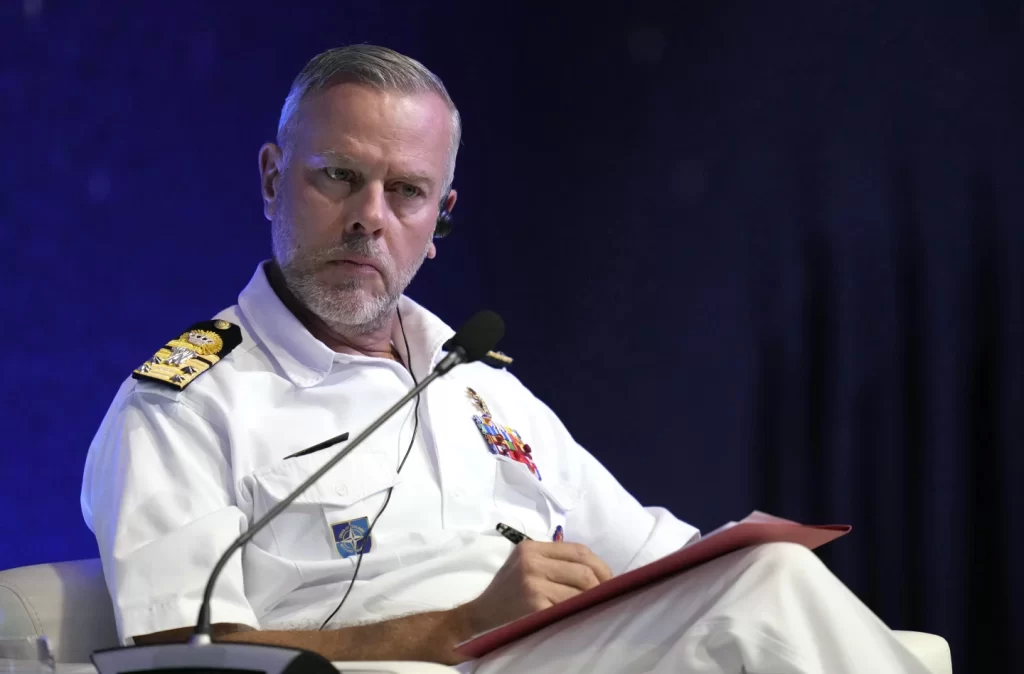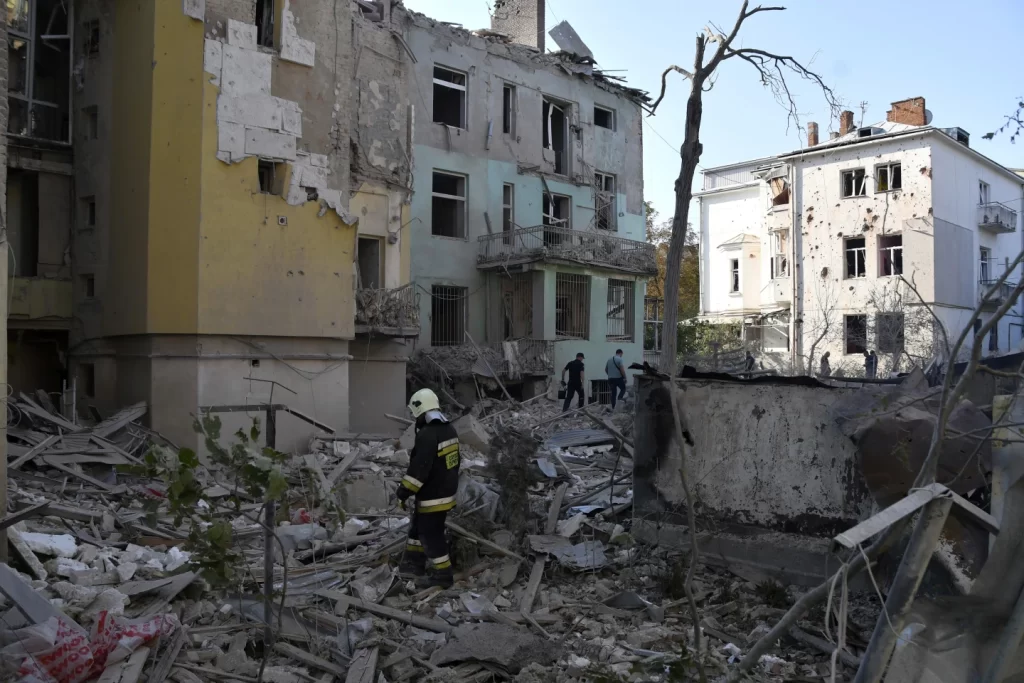The head of NATO’s Military Committee, along with other alliance leaders, expressed support Saturday for Ukraine’s right to conduct long-range strikes inside Russian territory, highlighting a growing divergence with the Biden administration’s more cautious stance.

Admiral Rob Bauer, chair of the NATO Military Committee, stated during a press conference following the committee’s annual meeting, “Every nation that is attacked has the right to defend itself. And that right doesn’t stop at the border of your own nation.” This position reflects the views of several U.S. allies but contrasts with Washington’s current policy.
The Biden administration has been reluctant to allow Ukraine to use American-made weapons for deep strikes into Russia, citing concerns about escalation and limited resources. However, pressure is mounting from allies and within Ukraine to reconsider this stance.
British Prime Minister Keir Starmer met with President Biden on Friday, reportedly seeking approval for Ukraine to use British Storm Shadow missiles for expanded strikes in Russia. The request underscores the complex web of international agreements governing weapons use, as Storm Shadow components are partly manufactured in the U.S.
Czech Republic President Petr Pavel urged NATO military chiefs to be “bold and open” in their assessments and recommendations, emphasizing the need for decisive action to protect allied countries and ways of life.

Lt. Gen. Karel Řehka, Chief of the General Staff of the Czech Armed Forces, stated that his nation places no restrictions on the weapons it provides to Ukraine, further highlighting the diversity of approaches within the alliance.
U.S. Gen. CQ Brown, Chairman of the Joint Chiefs of Staff, reiterated that current U.S. policy on long-range weapons remains unchanged. However, he emphasized the ongoing commitment to Ukraine’s success through various means, including support for Kyiv’s own weapons development programs.
Defense Secretary Lloyd Austin echoed this sentiment, arguing that no single weapons system would determine the war’s outcome. He noted Ukraine’s success in developing its own drone capabilities for strikes inside Russia.
The debate over long-range strikes comes as Ukraine intensifies its pleas for expanded military support ahead of winter, fearing potential Russian gains during the colder months. Ukrainian officials argue that the ability to strike deeper into Russia is crucial for disrupting supply lines and weakening the enemy’s capacity to sustain its offensive.
This discussion at NATO highlights the ongoing challenges in balancing military strategy, diplomatic considerations, and the risk of escalation in the complex geopolitical landscape of the Russia-Ukraine conflict. As allies continue to navigate these issues, the decisions made could significantly impact the course of the war and the broader security dynamics in Europe.
The NATO Military Committee’s stance adds a new dimension to the strategic dialogue, potentially influencing future policy decisions among alliance members and shaping the international response to the ongoing conflict in Ukraine.



